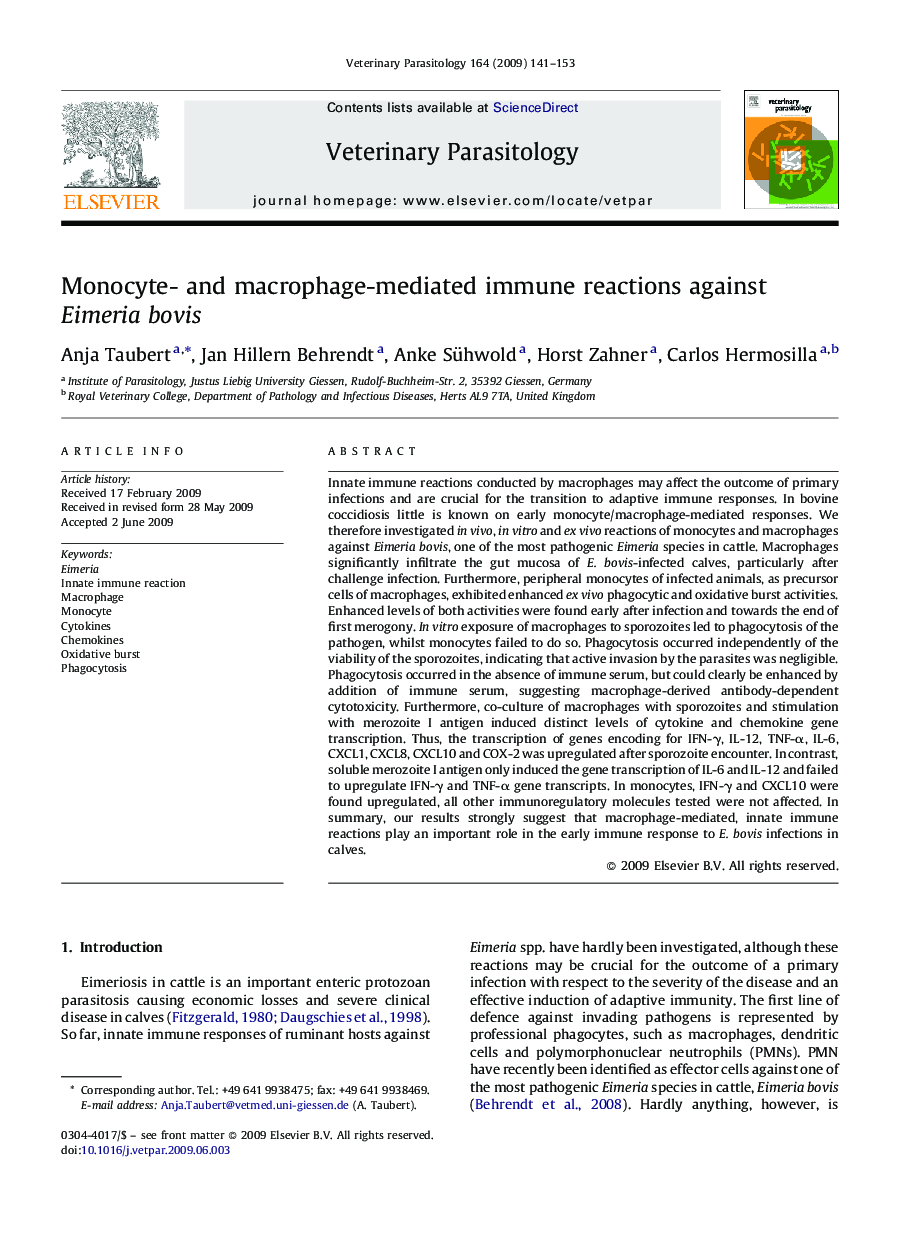| Article ID | Journal | Published Year | Pages | File Type |
|---|---|---|---|---|
| 2470933 | Veterinary Parasitology | 2009 | 13 Pages |
Innate immune reactions conducted by macrophages may affect the outcome of primary infections and are crucial for the transition to adaptive immune responses. In bovine coccidiosis little is known on early monocyte/macrophage-mediated responses. We therefore investigated in vivo, in vitro and ex vivo reactions of monocytes and macrophages against Eimeria bovis, one of the most pathogenic Eimeria species in cattle. Macrophages significantly infiltrate the gut mucosa of E. bovis-infected calves, particularly after challenge infection. Furthermore, peripheral monocytes of infected animals, as precursor cells of macrophages, exhibited enhanced ex vivo phagocytic and oxidative burst activities. Enhanced levels of both activities were found early after infection and towards the end of first merogony. In vitro exposure of macrophages to sporozoites led to phagocytosis of the pathogen, whilst monocytes failed to do so. Phagocytosis occurred independently of the viability of the sporozoites, indicating that active invasion by the parasites was negligible. Phagocytosis occurred in the absence of immune serum, but could clearly be enhanced by addition of immune serum, suggesting macrophage-derived antibody-dependent cytotoxicity. Furthermore, co-culture of macrophages with sporozoites and stimulation with merozoite I antigen induced distinct levels of cytokine and chemokine gene transcription. Thus, the transcription of genes encoding for IFN-γ, IL-12, TNF-α, IL-6, CXCL1, CXCL8, CXCL10 and COX-2 was upregulated after sporozoite encounter. In contrast, soluble merozoite I antigen only induced the gene transcription of IL-6 and IL-12 and failed to upregulate IFN-γ and TNF-α gene transcripts. In monocytes, IFN-γ and CXCL10 were found upregulated, all other immunoregulatory molecules tested were not affected. In summary, our results strongly suggest that macrophage-mediated, innate immune reactions play an important role in the early immune response to E. bovis infections in calves.
